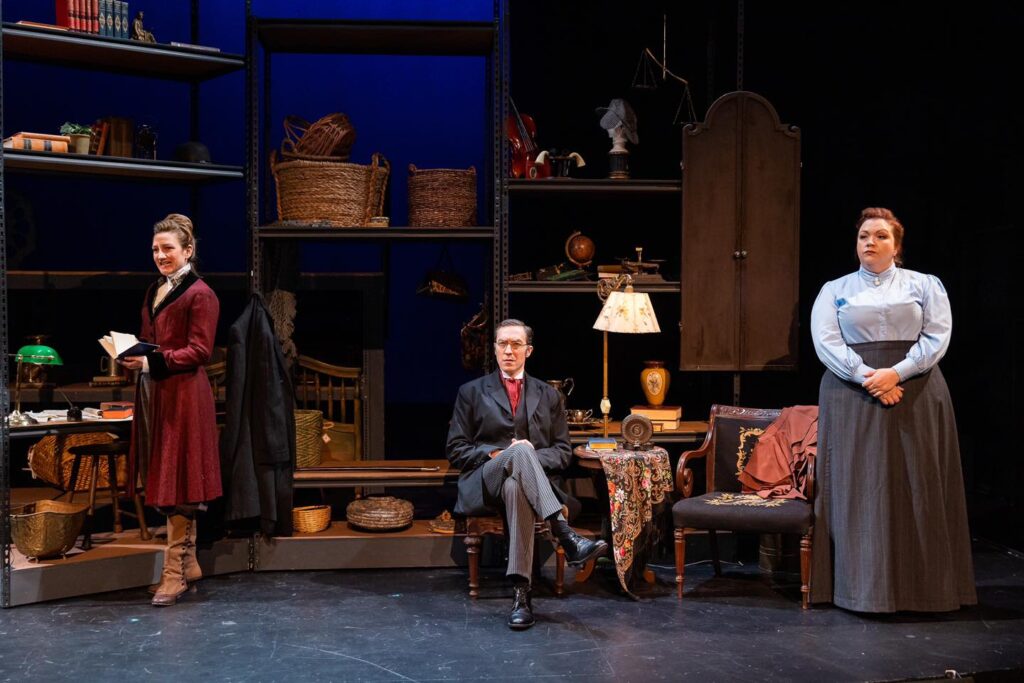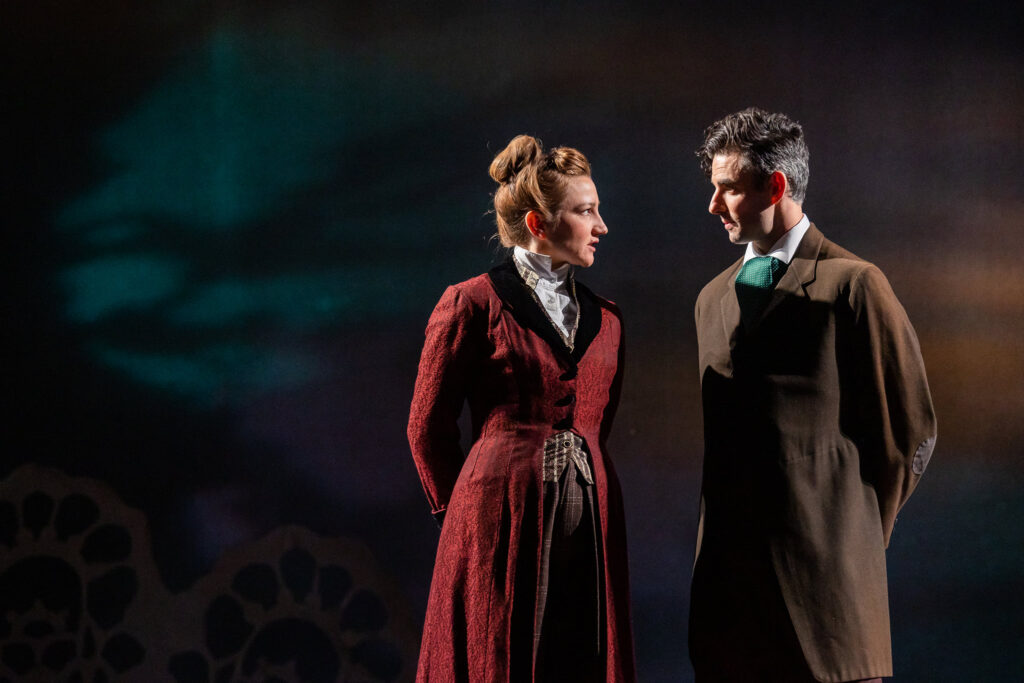
by Shelley A. Sackett
“Miss Holmes Returns” — Based on the characters by Sir Arthur Conan Doyle. Written by Christopher M. Walsh. Directed by Weylin Symes. Set Design by Katy Monthel; Lighting Design by Corey Whittemore; Sound Design by David Remedios; Costume Design by Deirdre McCable Gerrand. Produced by Greater Boston Stage Company, 395 Main St, Stoneham, MA. (Run has ended)
In this world premiere, the all-male main characters of Sir Arthur Conan Doyle’s famous mysteries are recast as women. Miss Sherlock Holmes and Dr. Dorothy Watson are called upon to get to the bottom of a murder (or two) for which an Indian nurse is framed. Along the way, they encounter the effects of racism, sexism, classism and the Contagious Disease Act, laws enacted by men to “tell women what they can and cannot do with their own bodies.”
The Victorian era never seemed so far away, and yet so close.
For two hours and fifteen minutes (including one intermission), the Greater Boston Stage brings a compelling mystery to a magnificent stage. The lighting (Corey Whittemore), sound (David Remedios) and set (Katy Monthel) designs enhance the flow and mood and Weylin Symes’ direction is spot on, from the pacing to physicality to cadence of the actors under his baton. Icing on the cake are Deidre McCable’s costumes.
From the get-go, the audience is immersed in Sherlock Victorian territory — with a feminine twist. Amidst the books and old lamps of the study are hanging doilies and delicate needlepoint pillows. The complex yet satisfying plot has a little of everything: murder, mistaken identities, maps, social justice warriors, sibling rivalries, botany lessons, various British dialects, more murder, awkward flirting, empowered and empowering women and, of course, a villain, who is none other than the familiar and infamous Dr. Moriarty.

A splendid cast is more than up for the challenge. Paul Melendy (Daniel Burke/Adam Worthington/Professor Moriarty) is a standout, particularly as Worthington. He brings an instinctive quirkiness to Worthington’s mannerisms and speech, rendering the character simultaneously endearing, dorky and emotionally accessible. His body language is a joy to behold; his delivery is impeccably timed, a staccato tempo that somehow flows.
Alexander Platt (Mycroft Holmes) is excellent as the uptight, pompous know-it-all brother of Sherlock and Shonna Cirone brings warmth, grounding and quiet authority to her Dr. Watson.
As Sherlock herself, Marge Dunn is in almost every scene and the audience never tires of her clipped, no-nonsense delivery (think Asa Kate Dillon as the Conehead-like Taylor in the show “Billions”). There is something semi-robotic about the logical Sherlock, but Dunn’s underlying humanity manages to thaw the sangfroid demeanor from time to time.
Greater Boston Stage Company has had some real winners this season. This intimate theater in an easily accessible town has proven itself well worth the short drive.

